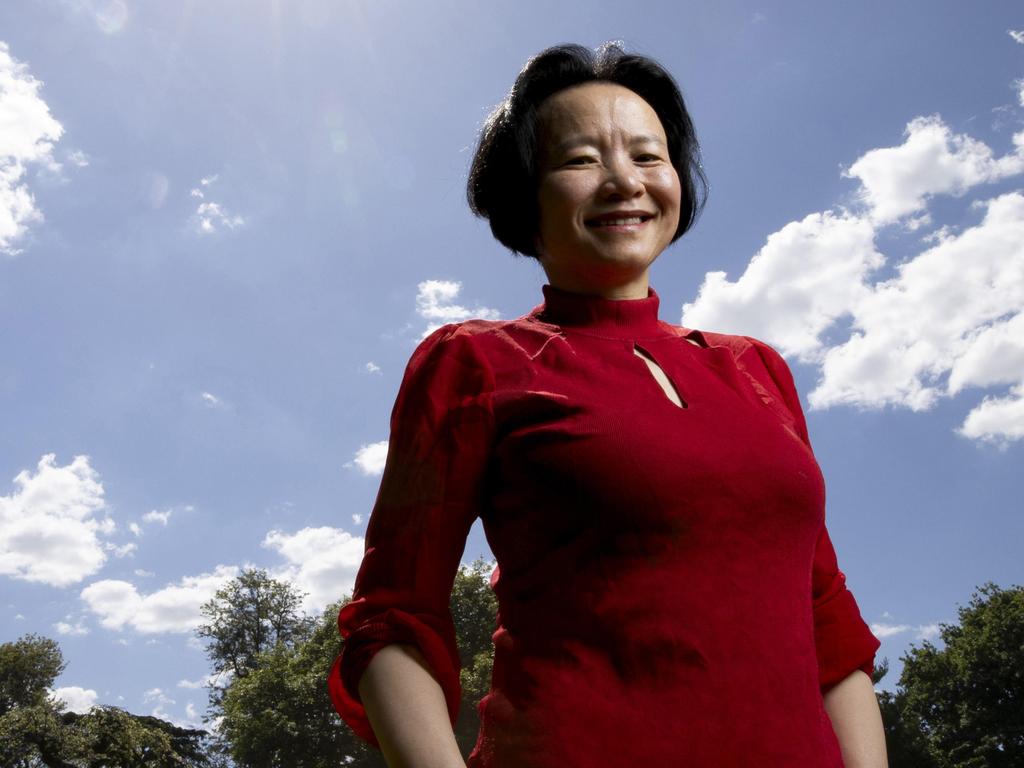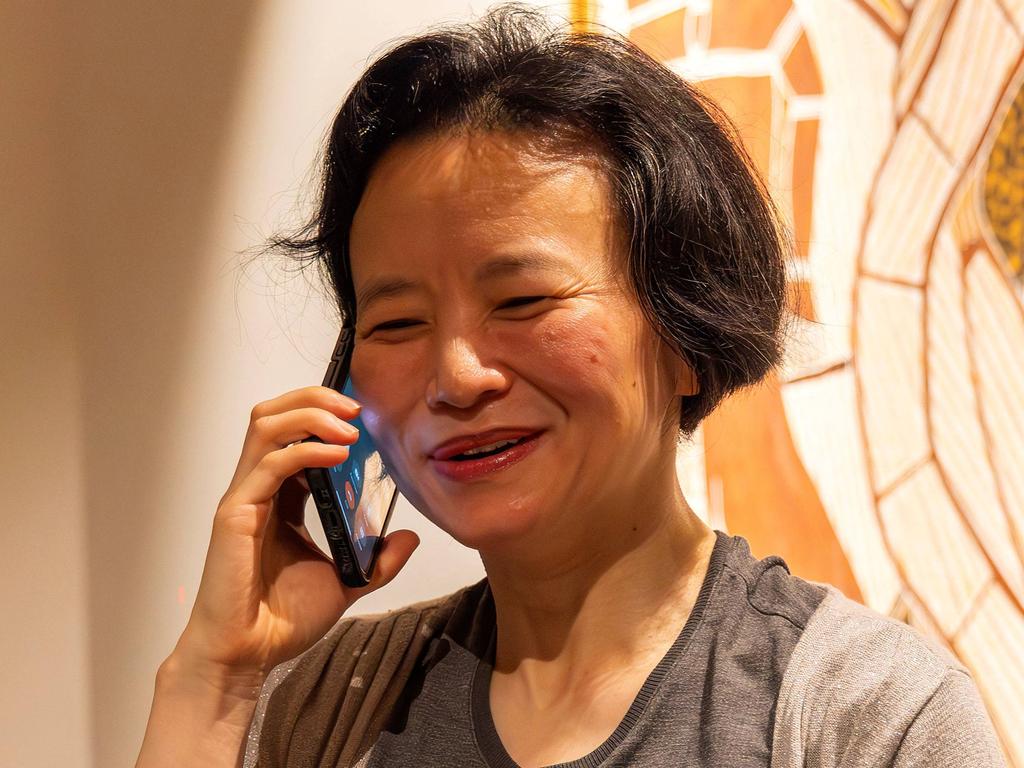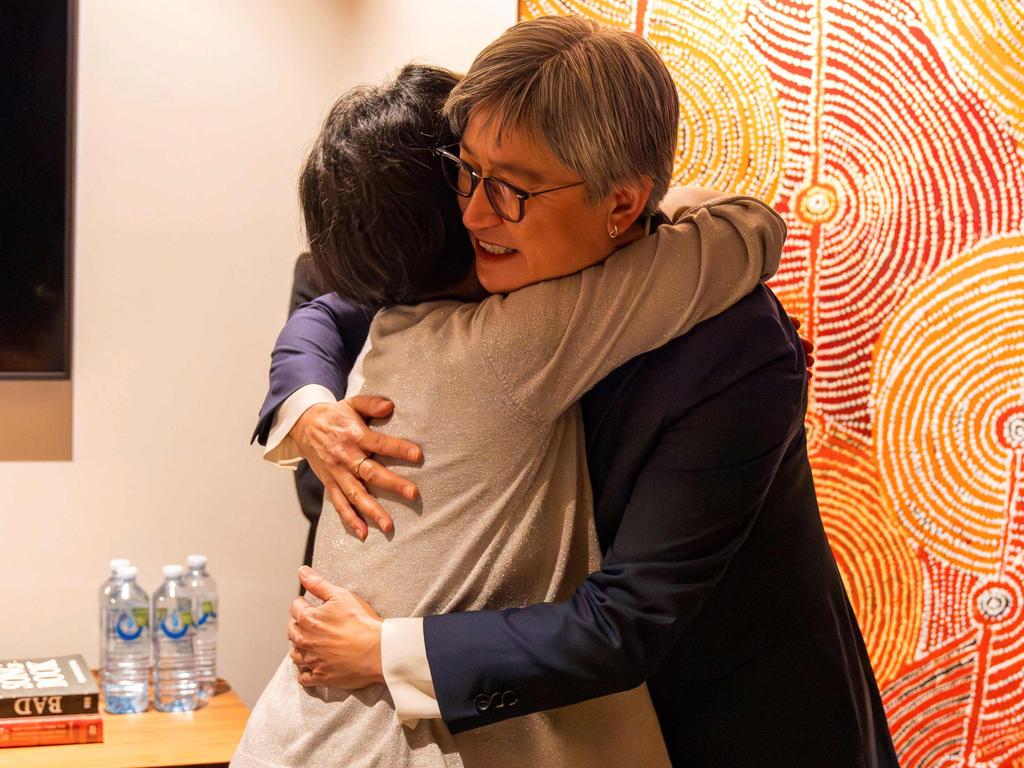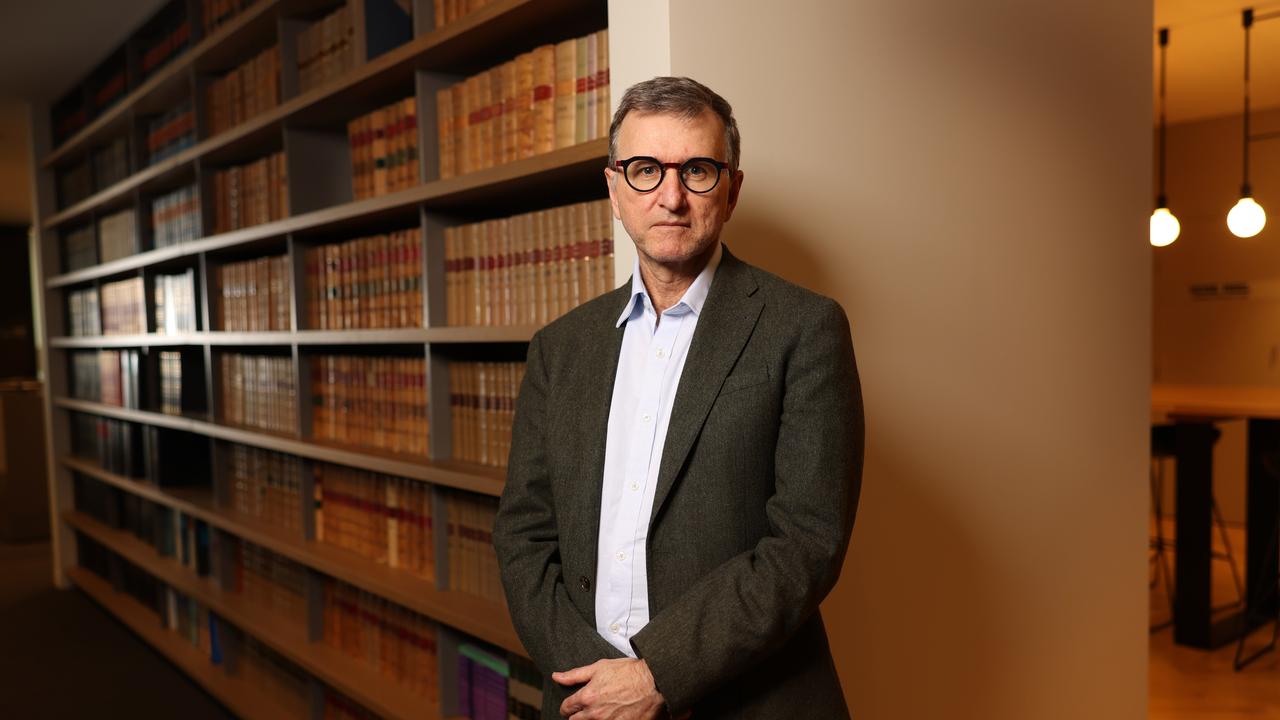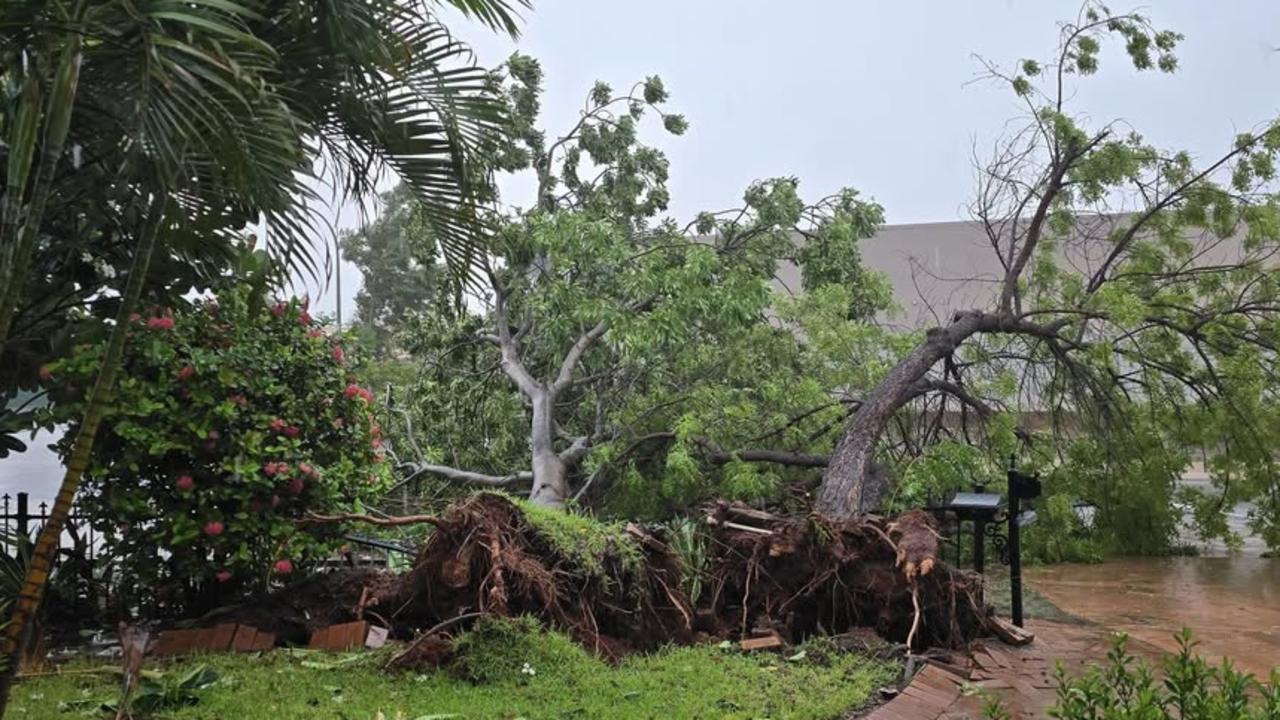Cheng Lei, The Australian’s 2023 Australian of the year, is the epitome of grace and courage
In a time of turbulence and anxiety, The Australian has chosen Cheng Lei as its 2023 Australian of the Year: a person of exceptional resilience, articulacy, and strength of values.
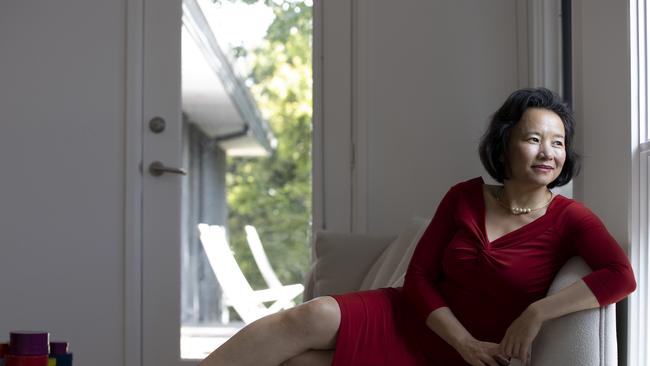
It was “Aussie-ness” that saved journalist Cheng Lei during her three years of cruel, pointless and essentially unexplained imprisonment in China.
“Don’t be a whinger or a wuss or a bludger. Stick up for your mates. Speak up for what’s right. No sacred cows. Don’t be up yourself. Give everyone a fair go. Always have fun, do anything for a lark.”
She emphasises: “If that’s not a survival guide to tough places, I don’t know what is.”
In a time of turbulence and anxiety, The Australian has chosen Cheng Lei as its 2023 Australian of the Year: a person of exceptional resilience, articulacy, and strength of values. Her celebration of freedom, including freedom of the press, chimes with The Australian’s own 60th anniversary this year – not just surviving but thriving in an era of unprecedented challenges for mainstream media.
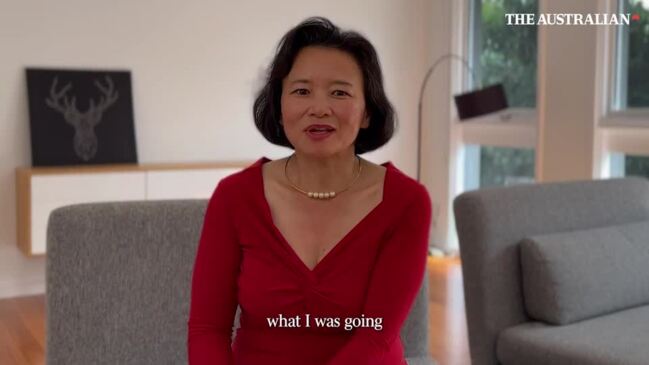
The Australian’s editor-in-chief, Michelle Gunn, lauded Cheng’s courage under duress.
“We are thrilled to honour Cheng Lei as our Australian of the Year,” Gunn said.
“Anyone fortunate enough to meet Cheng is immediately struck by her positivity and strength of character. She showed extraordinary courage during her lengthy detention, she embodies the very best Australian values, and she is a powerful advocate for freedom of expression and a free press, principles long championed by our masthead.”
Cheng, whose love of life and positivity since her release have won myriad admirers, said she was especially delighted and honoured to become The Australian’s Australian of the Year.
She joins previous winners including forensic scientist Kirsty Wright, astrophysicist and Nobel prize recipient Brian Schmidt, land rights activist Eddie Mabo and public servant H.C. “Nugget” Coombs in 1971. The masthead chooses to honour a person who has not only made great achievements in their life, but who has also contributed to the life of the nation and represents values Australians aspire to.
Cheng returned to her home base of Melbourne this week from a foray to Papua New Guinea, where she filed on the deadly and disturbing riots for her new employer, Sky News Australia, which is owned by News Corp, also the publisher of The Australian.
She spoke to The Weekend Australian about her perspectives, what inspires her, and her story.
While suffering in a Chinese jail, she says, “I used to think to myself jokingly – well, when I get out I’ll be an ex-con. So I’ll have fitting credentials to be transported to Australia.
“If you can’t laugh about incarceration, then you have no sense of humour.”
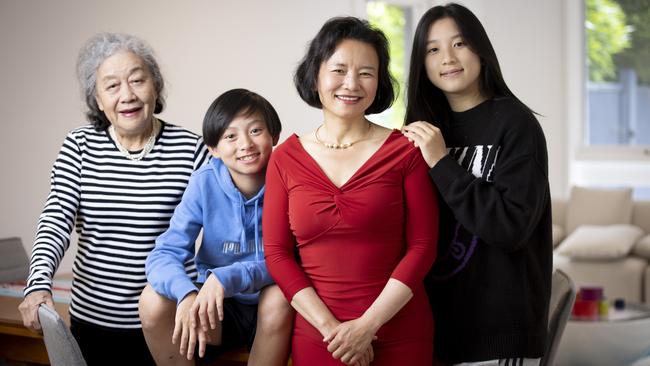
When cellmates remarked on her sunny outlook, she explained that “I got a lot of it in Australia, we are so lucky that we want to spread it around – laughs and enjoyment.”
Cheng defines being Australian as being egalitarian: “We blow raspberries at the hoity toity, we are sceptical about pomp, and do not blindly obey authority.”
Australians also help others: “It’s such a remote and sparsely populated country that you are unguarded and giving towards strangers. You appreciate the wacky – thanks to the land and its flora and fauna, we don’t bat an eyelid at stuff out of the ordinary, in fact we love it. And you’re open and welcoming – not judging.”
Aged 48, Cheng was released on October 11 from detention in China – where she was eventually charged with illegally supplying state secrets overseas – and reunited with her mother, Hua, and her children Ava and Alex, now aged 14 and 12, from whom she was denied direct contact throughout her incarceration.
Cheng is especially – and unusually for a journalist – articulate about emotions, tellingly those about her family.
She said: “When I was gone, mum was having to be everything to the kids, though she hadn’t been looking after her own health well.”
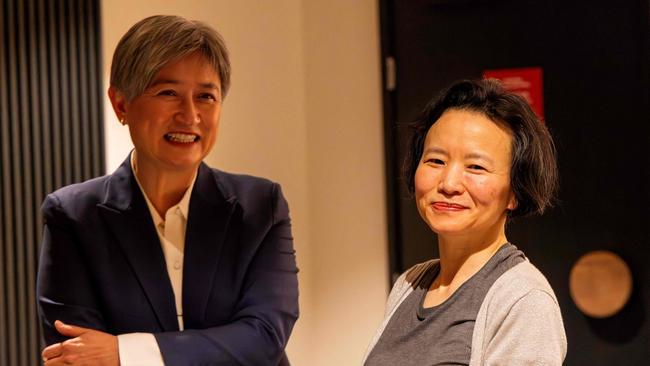
Cheng’s return means that “mum can relax now, back to table tennis and the folk orchestra at the community centre. I am really worried about her signs of dementia, it may be a part of the scar the trauma left on her, which is heartbreaking for me. She had always been on the spectrum …
“It’s not all been unicorns and rainbows since my release.”
But whenever she gets frustrated with her mum, she says, “I think of times when I would have killed to be able to hold her hand. So I say sorry right away, and speak gently, and cook something nice for her.”
Cheng recalls that her son used to enjoy a paper-folding game, “so I would sometimes do that same fold with toilet paper in my cell – it hurt like I couldn’t breathe, that pining for the kids”.
Now she can “listen to their endless chatter about soccer and funny memes and play Nintendo games with them. And negotiate chores and device times.”
They plan “fun things together, I love hosting my son’s sleepovers with his friends. One jokes that he’d like to move in! I think the abundant supply of yummy foods won him over.”
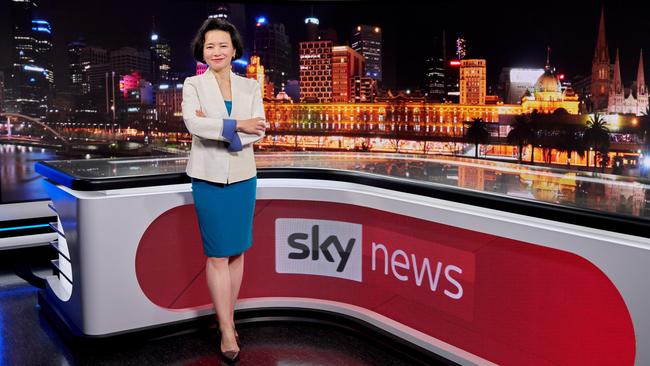
Sometimes, though, Cheng feels a natural wistfulness – “they don’t want to do everything with me any more, I missed out on seeing the kids grow up, they’ve had to transition to life in Australia on their own”.
Cheng’s arrest came as China-Australia relations were plunging, with Beijing reducing official relations with Canberra to a minimum, and hitting Australian exporters with trade sanctions.
Her resilience in the face of China’s punitive legal apparatus mirrors the bipartisan determination of Australia’s political leadership to push back, respectfully, against waves of coercion.
The China-Australia relationship has stabilised to a degree, aided by Cheng’s release. But Canberra remains aware that Chinese leader Xi Jinping’s remoulding of his Communist Party and his country will ensure that the relationship will face further tough challenges.
Foreign Minister Penny Wong on Friday marked the five-year anniversary of China’s imprisonment of Australian Dr Yang Hengjun by acknowledging the “strength that Dr Yang has demonstrated” and saying the government “will continue to advocate for Dr Yang’s interests and wellbeing at the highest levels”.
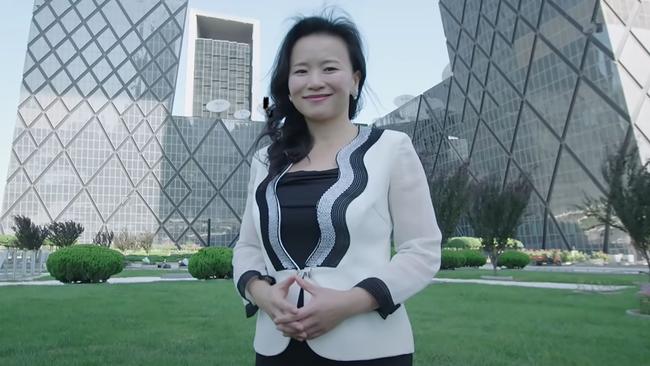
Dr Yang is still awaiting a verdict after being arrested on espionage charges in 2019 and facing a closed trial in 2021. Cheng’s release last year followed that of Australian economic adviser Sean Turnell, who had been detained by the junta in Myanmar and was freed in 2022, and academic Kylie Moore-Gilbert, who was imprisoned for two years in Iran before her return to Australia in 2020.
All were jailed by autocratic regimes and all have continued to speak out on their return home.
Cheng was born in Yueyang, Hunan province, in China, and migrated to Melbourne with her family when she was 10. She graduated as a Bachelor of Commerce from Queensland University, and also qualified as a certified practising accountant. She became an Australian citizen in 2001.
She worked for nine years as China correspondent for CNBC, the American cable business news channel, and then as a news anchor and business host for Chinese-owned, English-language network CGTN in Beijing.
She became especially well-known and popular among China’s then-substantial pockets of Australians, including as a fully bilingual host of social events and business awards, before her shocking arrest in August 2020.
Eventually, she was charged with breaking by a few minutes a government-imposed embargo following a briefing, but this framing of her dramatic arrest and detention remains unconvincing.
During imprisonment, “I read a lot, thought a lot, exercised a lot. I realised that the short internet snippet reading I had been doing wasn’t helpful – you really need to read books to understand something. I finally had time to think, instead of pedalling madly on the guinea-pig treadmill that was my life. I learned to tame my mind, to go where I wanted it to and not where it wasn’t helpful.”
She took up mind exercises as faithfully as physical exercises. “Boredom doesn’t exist in my life any more, because I learned to think for fun,” she says.
She discovered that she was “stronger than I had thought, that I could laugh through the tears, that I could make limoncello out of lemons, that I enjoyed helping others and being creative. It made me see the riches we squander – from the splendour of a sunset to the simple pleasure of a piece of fruit – and I promised to myself that I would never do that again.”
For Cheng, her cell-life “is my ground zero, the ultimate counterpoint to my life now. I respond with ‘I can’ to almost anything, whether it’s muggy heat or traffic congestion. Every previous bump and pothole in my life helped me get through the crater that was incarceration.”
She has learned the value of “soaking up strength from every source, like a tiny desert flower seeks liquid – books, news, movies, people you meet or hear about. You know others can do it and have done it, so can you.”
Cheng – whose partner Nick Coyle was chief executive of the Australian Chamber of Commerce in Beijing, and is now pursuing business opportunities in Port Moresby – says she has learned not to waste opportunities to show and express love for family and others who are close.
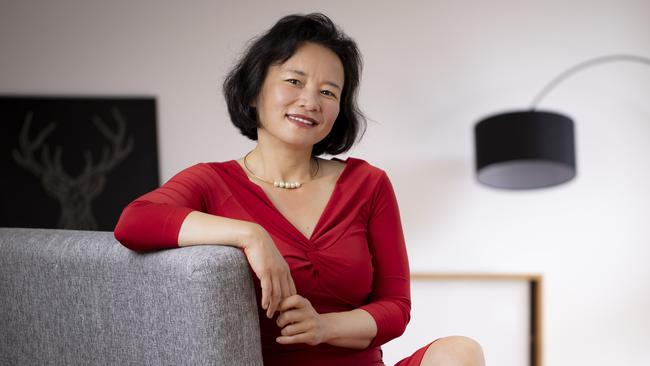
She has discovered that “the people closest to you are the ‘why’ of life that will help you get through the ‘how’. When you are not together, you are still carrying parts of them with you, seeing things through their lens, thinking of what they would do or say, feeling their love.”
The meaning of freedom also became especially clear during her years of captivity. “There is freedom within and freedom without,” she says.
“I used to think the warders were more imprisoned, because they were locked in what they could think, say, do, voluntarily, and for life.
“If you are not free at heart, then physical freedom is wasted. Free yourself by being cognisant of self-imposed imprisonment, the tyranny of schedules and habits, slaves to our phones, the sentence that is work we don’t like.”
Her understanding of the value of a free press is also clear: “Any regime that is afraid of a free press and tries to control the press is sick. The press are the eyes of society, that’s why society must protect press freedom.”
However, she adds: “The press should not abuse its freedom, it does not mean freedom to manipulate.”
The search for the truth is “as ever, tricky and oh-so critical. Peeling the onion of information is time-consuming, delicate and sometimes dangerous work.” And truth is rarely simple, “it is multi-layered and multifaceted and carries so many nuances it fries the mind. But we have to seek it.”
Rowan Callick, a former China correspondent of The Australian, is an industry fellow at Griffith University’s Asia Institute


